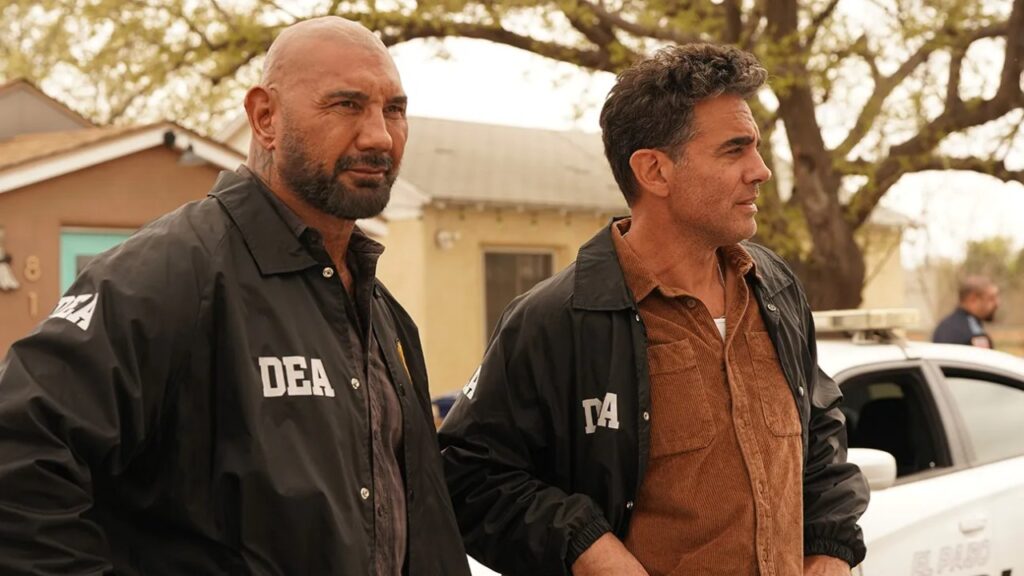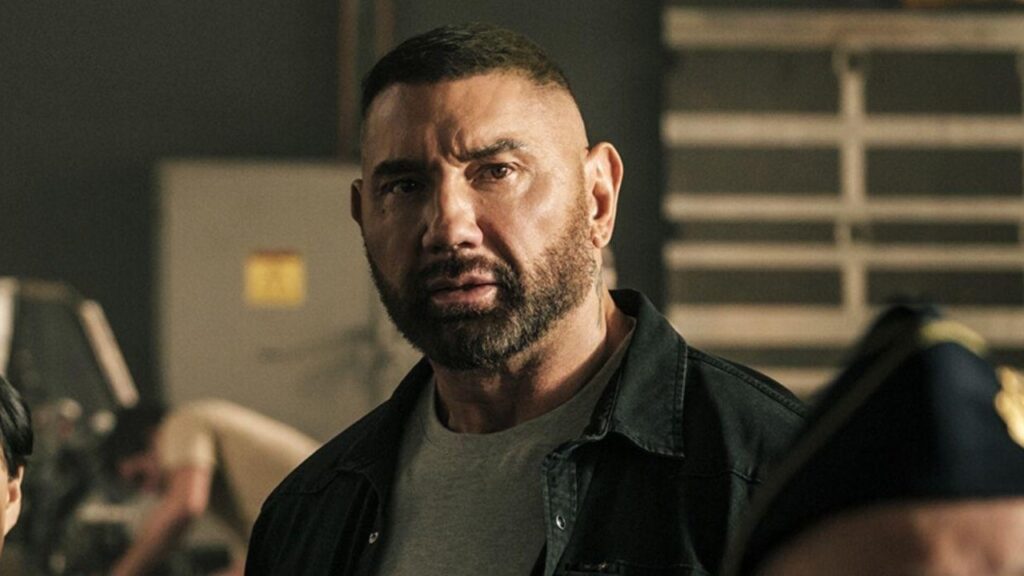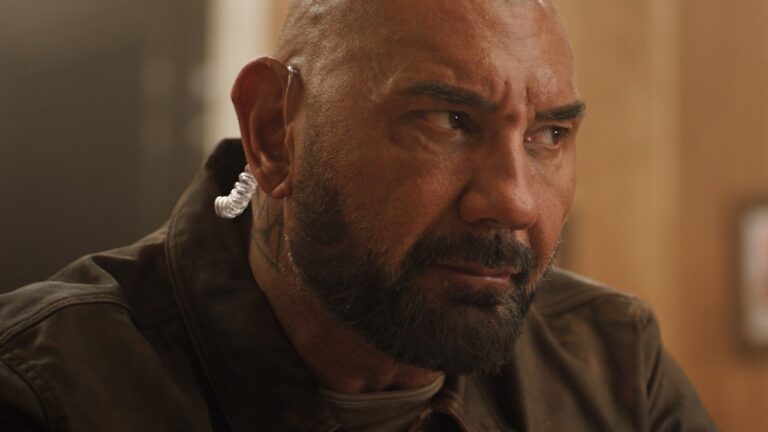Films and TV shows such as ‘Breaking Bad‘ and ‘Narcos‘ have made fans globally realize how tough it is to be a DEA agent in real life. And because of that ideation, fans are saying the same thing for the movie ‘Trap House,’ as it also opens with that plot in a different narrative. Fans of Dave Bautista see him playing Ray, who is a seasoned lawman, and as practical as he is, we soon find out that his professional dangers overshadow his personal ones. And in the shocking revelation, we see how Ray’s teenage son Cody, played by Jack Champion, has begun organizing his own vigilante raids on cartel operations, along with several other high school friends. By now, It becomes evident that Cody’s reckless missions, along with his friends, are driven by revenge and youthful defiance. We realize how it puts Ray’s career as well as both of their lives at immense risk.
The initial plot of the story shows us the murder of Cody’s classmate’s father, who was also a fellow DEA agent. And this is the main reason behind Cody’s motivation, and instead of processing grief, he channels it into violent action, recruiting his classmates and raiding cartel trap houses. And as the story goes on, we see how this secret operation pulled off by some high school teenagers soon draws the attention of a cartel leader named Benito (Tony Dalton) and his ruthless sister Natalia (Kate del Castillo), which puts all of their lives in danger.
Dave Bautista Shines, But the Ensemble Lacks Dimension

It is quite commendable as we observe how Bautista delivers a grounded performance while balancing authority and his personal vulnerability. His chemistry with Bobby Cannavale, who plays his good-natured partner Andre, adds brief moments of levity to the story. But, as the story progresses at its own pace, we realize that the screenplay offers little emotional depth for its secondary characters. And it becomes evident as we see the young cast, such as Sophia Lillis and Whitney Peak, that they are competent, yet their motivations remain on the surface level.
Because of the shift in movement and central focus of the camera lenses, fans can deduce that director Michael Dowse may have struggled to maintain a tonal balance. Because when we see the film, we understand that the narrative shifts uneasily between dark realism and implausible teen adventure that is beyond imagination. It’s made clear that Dowse handles the action sequences with technical skill but without tension or surprise, especially when we look at the scene illustrating Cody’s first raid, for instance, which should heighten suspense but instead feels oddly made up. And because of certain flaws, even the dialogues that aim for moral reflection land as cliché.
You may also like: Why Gary Oldman’s Jackson Lamb Is More Than He Seems In ‘Slow Horses’
Ambition Without Clarity Leaves the Film Adrift

Of course, there is no doubt that Trap House aspires to merge family drama with cartel intrigue, yet it surprisingly fails to portray it, as it never finds a consistent flow. The critics and the fans witness and speak about how Bautista’s natural charisma elevates moments that would otherwise collapse under the weight of the film’s contrivances. Still, as the plot unfolds and a possible sequel is teased, it becomes evident that ambition alone cannot save a story so confused about its own identity.
Fans all across the world of Dowse’s works think the Trap House plays like a film caught between sincerity and spectacle, and despite flashes of intensity, it falls down its implausible premise. And by the end, what remains is a serviceable, forgettable thriller that mistakes noise for impact and momentum for meaning.




